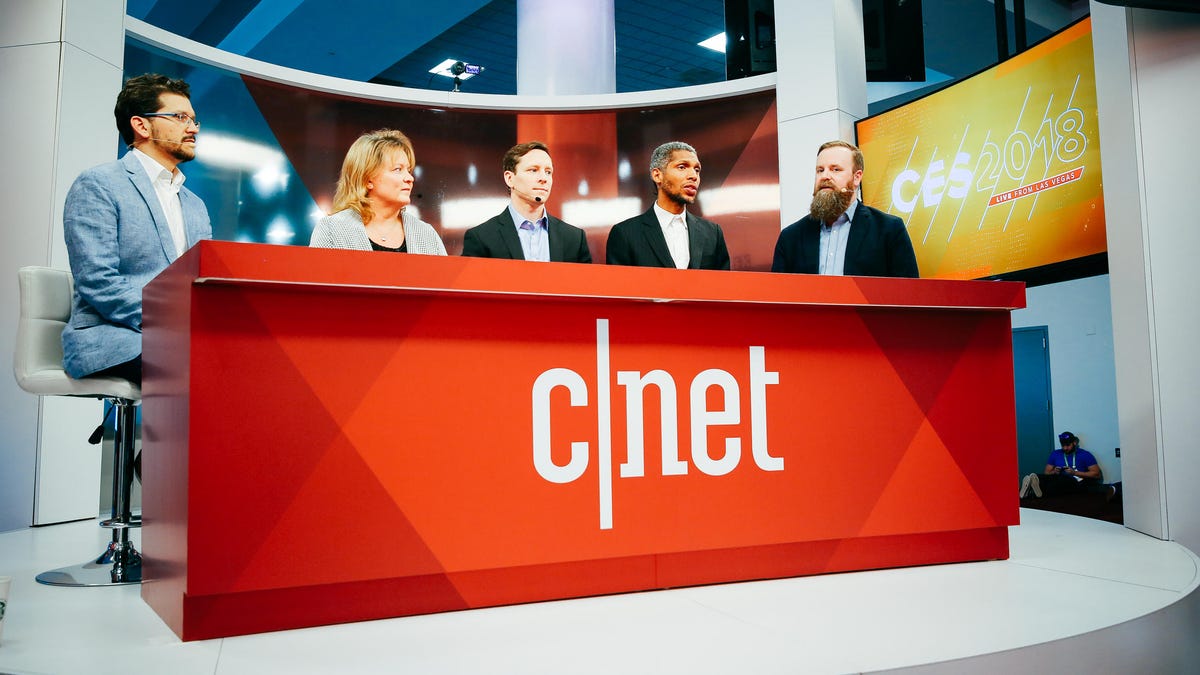Google, Amazon and the future of smart home shopping
A CNET-hosted panel at CES discusses getting people comfortable with strangers in their homes and making sure everyone gets the right kind of toilet paper.

A panel at CES discusses shopping and smart home technology.
Does the thought of letting a stranger deliver a package directly inside your house make you a little uptight?
This was one of the first points of discussion in a CNET-hosted panel on shopping and the smart home on Wednesday at CES 2018.
"I don't think this is a hugely revolutionary idea," said Jason Williams, president of residential business for Assa Abloy, which is the parent company of August Home and lock maker Yale.
Williams, along with Lori Flees, senior vice president for next-gen retail at Walmart, told CNET executive editor Rich Brown that in a sense, letting strangers into our personal spaces is something we're already doing, whether it's through ride sharing or a dog walking service, or leaving a key under the welcome mat for a real estate agent.
If anything, Daniel Rausch, vice president of Amazon Smart Home, made the argument that the main change afoot with the rise of delivery into the home is the increased control and convenience that comes with the ability to monitor a delivery via video feed or even decide at the last minute you don't want it to happen.
Still, there are some challenges along the way to mass adoption, as the panel discussed.
For one, just because a device like 2017's Amazon Key -- which enables such deliveries into your home -- exists, doesn't mean everyone can use it. For dwellings like apartment buildings that might have gates, garages, or whatever else, it's another layer of complexity to figure out how to set up deliveries. Brown referenced living in a co-op in New York City -- a building dating back to the 1950s that will likely never jump on board the smart lock train.
Flees and Rausch talked about trials and offerings from Walmart and Amazon like lockers where a delivery person could leave a package at your apartment complex or even your subway stop.
Google's Mark Spates, product lead for Smart Home, said it's going to take rethinking customer service, from the ground up. After all, if something goes awry during the delivery, no one wants to call each service involved in getting a package to you.
Spates also noted that there're also times when people just don't see a reason for a different solution -- perhaps having a package delivered to their office is convenient enough.
Another evolution in the shopping experience these days is using your voice to order products. Brown asked how these companies make sure that a simple request for more toilet paper translates into the right amount and the right brand.
"The best shopping experience for toilet paper does not exist," Rausch said. However, your Amazon shopping history could be the clue to getting that prefered quilted two-ply from your favorite brand.
And as far as food goes -- how do you ensure that the person delivering your groceries straight to your fridge, as Walmart has been working on through a partnership with August Home, picks just the right avocado?
Flees said much of this comes down to training and doing the sort of background work customers don't see.
The ideal result: [It's] "as if the package appears magically," she said.
What to expect from the big screens of 2018: From OLED to QLED to Micro LED, CES is the place where screen time is absolutely friggin' huge. Here's a peek.
CES 2018: CNET's complete coverage of tech's biggest show.

